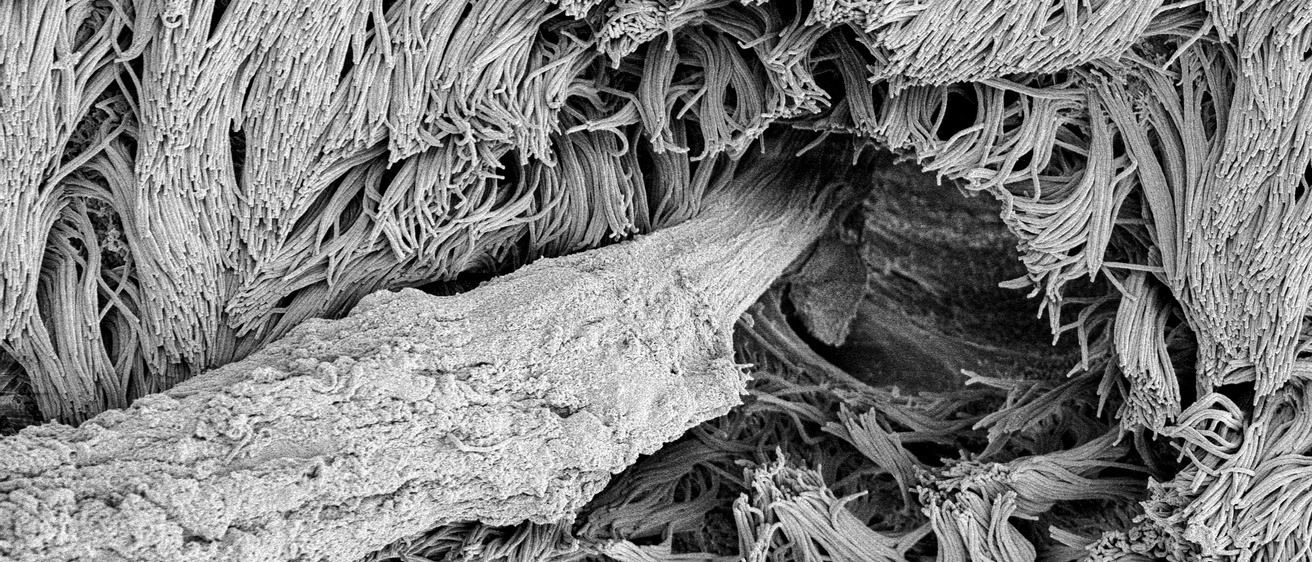Main navigation
Required Courses and Electives
Biomedical Sciences Graduate Program Cell and Developmental Biology Subprogram
Biomedical Sciences Graduate Program Cell and Developmental Biology Subprogram
- Interdisciplinary graduate program dedicated to providing rigorous training in experimental cell and developmental biology. Research by the faculty and students within the program is focused on the basic mechanisms of cellular organization and of developmental gene regulatory networks, and the relevance of these topics to health and disease.
Year 1 - Fall Semester
Year 1 - Fall Semester
- Principles in Molecular and Cellular Biology
- Basic Biostatistics and Experimental Design
- Biomedical Science Seminar
- Topics in Molecular and Cellular Biology
- Biomedical Science Research
- Elective (relevant to Cell and Developmental Biology)
Year 1 - Spring Semester
Year 1 - Spring Semester
- Pathogenesis of Major Human Diseases
- Methods for Molecular/Translational Medicine
- Rigor and Reproducibility in Biomedical Science
- Biomedical Science Seminar
- Biomedical Science Research
- Elective (relevant to Cell and Developmental Biology)
Year 1 - Elective Courses
Year 1 - Elective Courses
- Genetic Analysis for Biological Systems
- Genes and Development
- Transcription RNA
- Epigenetics, Cancer and Mouse Models
- Growth Factor Receptor Signaling
- Cell Cycle Control
- Cell Fate Decisions
Year 2 - Fall Semester
Year 2 - Fall Semester
- Mechanisms of Cellular Organization
- Critical Thinking in Biochemistry and Molecular Biology
- Critical Thinking in Development
- Critical Thinking in Cell Biology
- Graduate Research in Cell and Developmental Biology
- Cell and Developmental Biology Graduate Student Seminar
- Principles of Scholarly Integrity (CITI)
Year 2 - Spring Semester
Year 2 - Spring Semester
- Critical Thinking in Scientific Writing and Presentation
- Critical Thinking in Cellular Physiology
- Critical Thinking in Genetics
- Graduate Research in Cell and Developmental Biology
- Cell and Developmental Biology Graduate Student Seminar
- Principles of Scholarly Integrity (CITI)
Comprehensive Exam
Comprehensive Exam
- The comprehensive exam will be on-topic. However, one aim from the proposal must have no input from the adviser and must have no overlap with a grant from the host lab.
Annual Retreat
Annual Retreat
- Cohesiveness will be built through an annual retreat and other activities that allow the faculty and students to become fully engaged with the program.
Student Presentations
Student Presentations
- Cell and Developmental Biology Seminar Series – In the first year, students will give rotation talks, and in subsequent years students present their thesis research annually. The purpose of the series is to train students in presentation skills. The seminar will be attended by the students themselves, and by one or more CDB faculty members who have agreed to evaluate the presentations.
- Feedback will be required of student and faculty attendees. A student’s thesis committee members will be invited to attend that student’s seminars.
Electives
Elective Courses
Elective Courses
The offerings of elective courses change each year and is determined shortly before the term begins. Below are examples of courses that have been offered in the past 5 years that would be acceptable elective courses for students in the Cell and Developmental Biology.
- Genetic Analysis for Biological Systems
- Genes and Development
- Transcription RNA
- Epigenetics, Cancer and Mouse Models
- Growth Factor Receptor Signaling
- Cell Cycle Control
- Cell Fate Decisions
- Gross Human Anatomy for Graduate Student
- General Histology Online
- Human Embryology Online
- Functional Neuroanatomy
